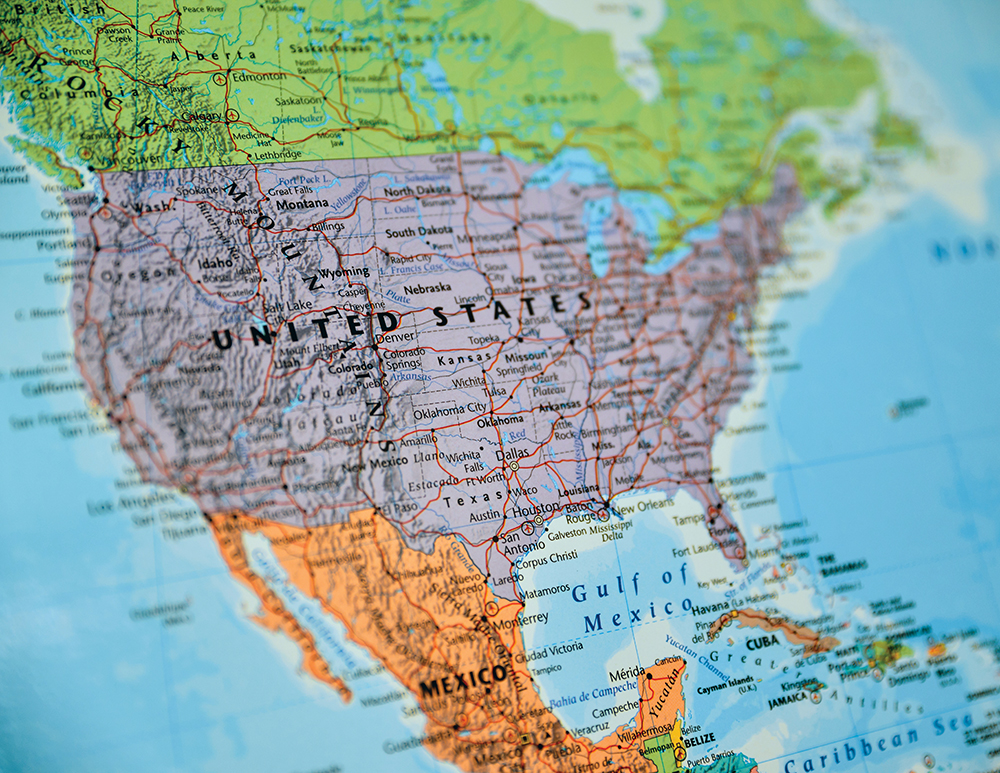Joe Biden’s presidency — by all accounts — is on a ventilator right now, and many people want his administration to asphyxiate. He could save himself, and the country, by leading us toward an innovative reform of our immigration system.
Our current system is based on an outdated, anachronistic visa system that rewards “skills” deemed necessary for the development of the United States economy and society. Specialized engineers from Slovakia, research scientists from South Africa, and concert pianists from Paraguay have been able to visit here, stay here, and thrive. But the vast majority of the world’s population is “unskilled” and thus, the contemporary conundrum.
We can keep the current system intact and add in an “Americas exception,” which would acknowledge three realities. First, the USA shares a continent with Canada, Mexico, and seven nations of Central America. Second, those nations, with the exception of Canada, are significantly poorer, in real economic terms, than the USA. Third, we’ve intervened in virtually all of the nations mentioned above, mostly in a hostile, negative, and menacing military manner. I would extend my plan of prioritizing visas for people of the Americas to the Caribbean nations, especially Haiti and the Dominican Republic
Mexico is the first obvious nation to consider. About 44 percent of the population of 120 million are classified as poor. We share a 2,000-mile border with Mexico, a border that was artificially created in 1848 when the U.S. took 51 percent of Mexico’s territory in a war designed to … take Mexico’s territory. We wanted the land to extend cotton production into Texas and further west, and we wanted to extend our national border to the Pacific. We also wanted to extend slavery.
How have we responded to this history? By building a wall and insulting the people who live in Mexico, referring to them as “rapists and drug dealers.” The vast majority of Mexicans who come to the USA want to work here, send money back to loved ones in Mexico, and improve their standard of living. Let’s make it easier for them to come here: We offer very few legal visas to unskilled workers — maybe 5,000 for the entire world. We could change this by simply prioritizing Mexico and recognizing our historic ties to the country and our 19th century “grand theft (half) nation.”
Then there’s Guatemala. A fascinating new historical novel (Harsh Times) by the Peruvian Nobel laureate Mario Vargas Llosa offers an unpleasant appraisal of the U.S. role in deposing the legitimately elected president there in 1954. Vargas Llosa — hardly a leftist — reminds us that the USA stalled a legitimate attempt at socioeconomic reform in the small Central American nation while supporting some of the most repressive, reprehensible people in the region. The legacy of our actions? Sadness, civil war, authoritarianism, and about 300,000 deaths from 1960 to the mid-1990s when peace accords were finally signed there. And wide-scale misery: About 54 percent of Guatemalans live in poverty.
We really do have an obligation to help the people of these places and we’ve certainly helped in many ways: Our nation has been generous with aid and support after natural disasters, we’ve offered people the opportunity to stay in the USA through TPS — “Temporary Protected Status” — designed for folks from countries ravaged by natural disasters and/or really absurd political policies (Haiti, Nicaragua, to name two). We also, in 2012, implemented a policy via presidential executive action called DACA, which protects kids who have come to the United States as infants with their parents. TPS and DACA are both “temporary” fixes — TPS is designated at the discretion of the Secretary of Homeland Security. Both programs were attacked by a hostile Trump administration, both saved by the U.S. judiciary system.
We need permanent solutions to support immigrants — we should focus on supporting people who want to come here, work here, and help our economy and society. We have a special obligation to our neighbors to the south.
Without immigrants, we become Italy — an aging population, politically motivated low levels of immigration, escalating healthcare costs, followed by endless economic stagnation. The Italians, of course, did give us Michelangelo (we responded by gifting the world … Andy Warhol). But to avoid the socioeconomic Italianization of America, we have to bring in immigrants who want to work here, live here, and continue building our economy and society. Let’s truthfully study our history. Let’s work in collaboration with our neighbors to the south and break out of this politically motivated, unproductive, and unkind immigration impasse that’s distorting our economy and just might, sadly, suffocate the Biden administration.
Michael LaRosa teaches history at Rhodes College.
